As with most days, today started with a screening – it was my first time up in the rooftop cinema known as the Salle de Soixentieme, which given that the festival is now in its 72nd year, makes me feel particularly old, because I remember the Palais long before it had a screening room on its roof. Until the recent shake-up of the screening schedule, this used to be where I’d see most of my films.
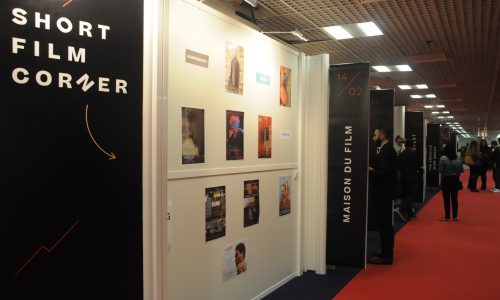
A pleasantly warm, sunny and dry day began with the latest biopic documentary from the Amy and Senna director Asif Kapadia. Diego Maradona uses archive footage to reveal the controversies surrounding the Argentine footballer’s time with the Italian club Napoli, in the 1980s. As is often the case, this was difficult to watch in Cannes, because it was mostly in Spanish or Italian, so the French subtitles were on the screen and the English translation below it and having to take your eyes off the screen to read the English often meant missing important information displayed on the image of who’s talking, and so on. And, oddly, interesting as the film was while you’re watching, I didn’t learn anything that I didn’t already know – particularly need to know – or couldn’t find out if I needed to know.
Next, I shot through the Marche, where an area devoted to short film makers has just opened, to run until the end of the festival. Short Film Corner has a handful of stands, a conference centre, screens for watching the shorts and the all-important reception area.
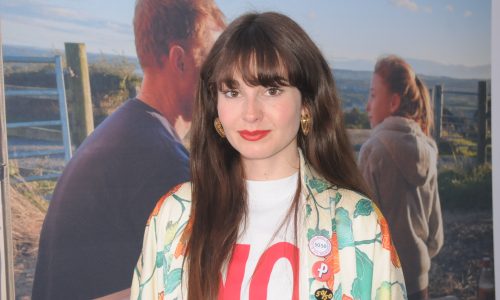
Meanwhile, in the UK Film Centre, people were gathering for a talk by the director and producers of the Palme d-Or-nominated UK-German-Austrian co-production Little Joe. Victoria Emslie was there, talking to people about her new service, Primetime, aimed at helping producers find women to work in various roles on their films to help with the lack of female representation in areas of the industry. With the backing of both the 50:50 movement – which seeks to equalise the proportion of men and women in the business – and the Time’s Up campaign, she’s been meeting women to urge them to sign up to the database and producers to urge them to use it. She acknowledged that there had been improvements over the past year, but said her service would “join the dots” and help producers who want to hire more women but don’t know where to find them.
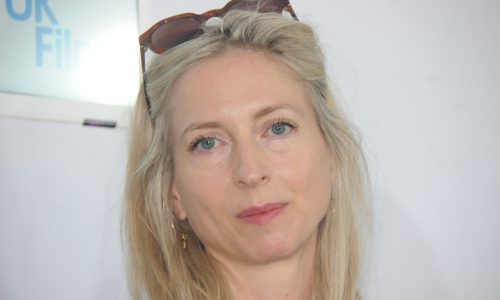
The event that followed reflected the kind of future world Victoria would be aiming to create – The BBC and BFI-backed Little Joe was directed by a woman, Jessica Hausner, written by her with another woman and produced by a man and a woman. With the talk being moderated by the London Film Festival director Tricia Tuttle, the producer Bertrand Faivre seemed perfectly comfortable being the only man on a panel of five. After a clip of a film that’s female-led both on and off screen, the Austrian director explained her aim to make a “female Frankenstein film,” concentrating on a woman who – in a sense – created a monster, whether this refers to the plant with mind-altering powers or her son. “She tries to be perfect, but she can’t,” she explains. Outlining who she’s turned to the English language for the first time, Hausner said she found it to be more “short and precise” than her native German, “without being banal.” She said she preferred how her own dialogue sounded in English than in German. As for the tone of the lead character, she noted that she had been wanting to make a fairy-tale. “She was a geneticist, but she could also have been a witch.” Her work is certainly idiosyncratic, from the clean, stylised look, to a crisp script peppered with subtle but biting humour and a plot hovering just the wrong side of reality. “I was looking for a distinctive director in a world where it’s harder and harder to be distinctive,” recalled Faivre – a French producer who’s based in both the UK and France. His Irish co-producer, Gerardine O’Flynn gave some insight into the smoothness of the film-making process, revealing that for her, the most stressful part of the production was deciding on the seating arrangement of the film’s 45-strong contingent for the world premiere at the Lumiere theatre.
Next it was off to the annual press lunch laid on by the BFI – a useful opportunity for journalists to mingle with some of the most influential film-executives in the UK – and each other. Sadly, I had to leave it early to get back to the Palais for another screening – based on the recommendation of one of the British reviewers, Anna Smith, the head of the London Film Critics Circle. She’s currently tipping Portrait of a Young Girl on Fire as a possible Palme d’Or winner. Having got caught up in conversation, I ended up leaving later than intended and ran through the kind of sunshine that’s been missing from the Riviera for days, got caught up in the crazy bureaucracy of the Cannes security barriers, which meant running up and down the Croisette several times just to get in, and by the time I reached the cinema, it was full. Again. A new system of press screenings has resulted in more people getting to read the reviews and get recommendations before the later screenings, resulting in more people trying to catch the films held in highest regard – and as a result, being shut out.

I was determined not to miss another screening so next, I headed for a competition screening in the 2500-seater Lumiere, remembering only once I’d passed the first security barrier that I wouldn’t be allowed to take any drink in – on the way down the path, I hid two cans of drink under a palm tree in the hope that I’d remember to collect it later – and it would still be there. I managed to get inside to see the premiere of the new Dardenne-brothers film, Young Ahmed. The young Ahmed of the character is a young muslim boy who’s become radicalised by his Imam to attack non-believers and ends up being put in youth detention. It’s a shocking portrayal of the way in which clerics can manipulate the innocents within their communities, with a dominant performance from a young Idir Ben Addi as he tries to balance his religion with struggling with being a typical teenager in modern-day Belgium. There’s much to admire in this film that owes a debt to Francois Truffaut’s Les 400 Coups, but its convenient denouement comes out of nowhere and bears little relevance to what has preceded it.
At less than an hour and a half, the unusually short film, for Cannes, enabled me to get back to the UK Film Centre in time for an interview with the BFI’s number two, Ben Roberts – or at least it should have done. It turned out that the Dardenne brothers and their cast were sitting just three rows behind me and took a standing ovation at the end of the film, during which no-one could leave the cinema. It turned out that the actors Chloe Sevigny and Tilda Swinton were sitting directly behind me, paying their respects to the film-makers.
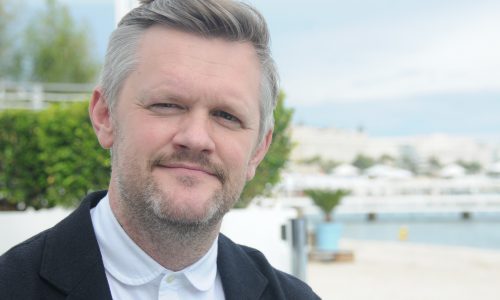
As I finally approached the UK Film Centre, only a little late, I came up – once again – against a jobsworth security guard who wouldn’t let me into the area, seemingly unaware of the existence or purpose of press badges. He waved through festival-badges and market-badges and refused to let me pass. I had to find a back way in, making me even later, but luckily Ben Roberts was still engaged in an earlier meeting, so I didn’t have to feel quite so bad. When we finally sat down to chat, he said Cannes had a huge platform, with the world press, industry and audience convening so having two films selected for competition absolutely mattered – and he said the fact that both films were international co-productions was a signal to the world that the UK was open to the world for collaboration.
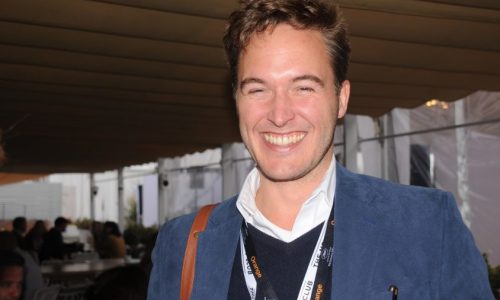
After several days in Cannes, I finally managed to squeeze in a quick catch-up with British producer Nick Hirschkorn, of Feel Films, a primary school friend of mine who lies and works just five minutes walk away from me in London, but we only ever seem to meet up in Cannes. We caught up at the Plage 45 private members club on the beach, which seems to be a popular hangout for many British industry figures; while I was waiting for Nick to finish his previous meeting, I bumped into sales agent Phil Hunt of Bankside Films and a first-time writer-director Alex Marx, whose recently done a rewrite of Miraculous Isabella, his based-on-real-life screenplay, after receiving what he described as very useful script notes from an A-list Hollywood actor.
Having mentioned yesterday that I had no evening events lined up for tonight, one came up, courtesy of Screen International – in another beach club, just a few minutes along the Croisette. There, many UK industry figures were mingling, as the British Film Commission’s Adrian Wootton gave a barnstorming defence of the British system, saying that despite what he called “all the political nonsense” at the moment, the industry in the UK was now bigger than pharmaceuticals and he assured anyone considering investing in in film-making in the UK that it had a world-leading tax incentive programme and “Brexit doesn’t change any of it. And we’re absolutely committed to working together, whatever happens.” And fitting in with what other people have been saying along the Croisette, he said the BFC was working closely with others to ensure that the industry in the UK is a climate-friendly as possible, through schemes such as Green Screen.
Milling around the event, I found myself chatting with fellow critics, meeting new contacts and listening in to the usual conversations about how meetings have gone well or the funding is nearly in place and even – or particularly – at such evening events, people were pitching; one man was even flipping through a hard bound notebook full of hand-drawn storyboards.
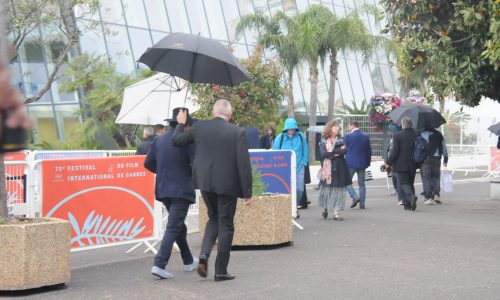
On the way back to the Palais, I encountered the unexpected sight of the festival jury president Alejandro González Iñárritu walking along the Croisette in the rain. Unlike him, I’m not provided with a personal umbrella holder, so that I can keep my hands in my pocket and look cool.
From here, I made another failed attempt to see the highly praised Directors Fortnight film The Lighthouse, which had been given extra screenings because of the high demand, but the queue was just too long, so I ended up watching the new Isabelle Huppert drama Frankie, about the matriach calling her disintegrating family together in the Portuguese resort of Sintra for one last time. Despite some of the biggest names in global cinema, from Ireland, Belgium, France and the US, it felt too much like a succession of people just wandering around, chatting about relationships as they crumbled around them, but there didn’t seem to be much meat on the bones. Hopefully, a press conference tomorrow might illuminate me, but film-goers world wide don’t get the same opportunity that journalists do to hear film-makers explain their work.
